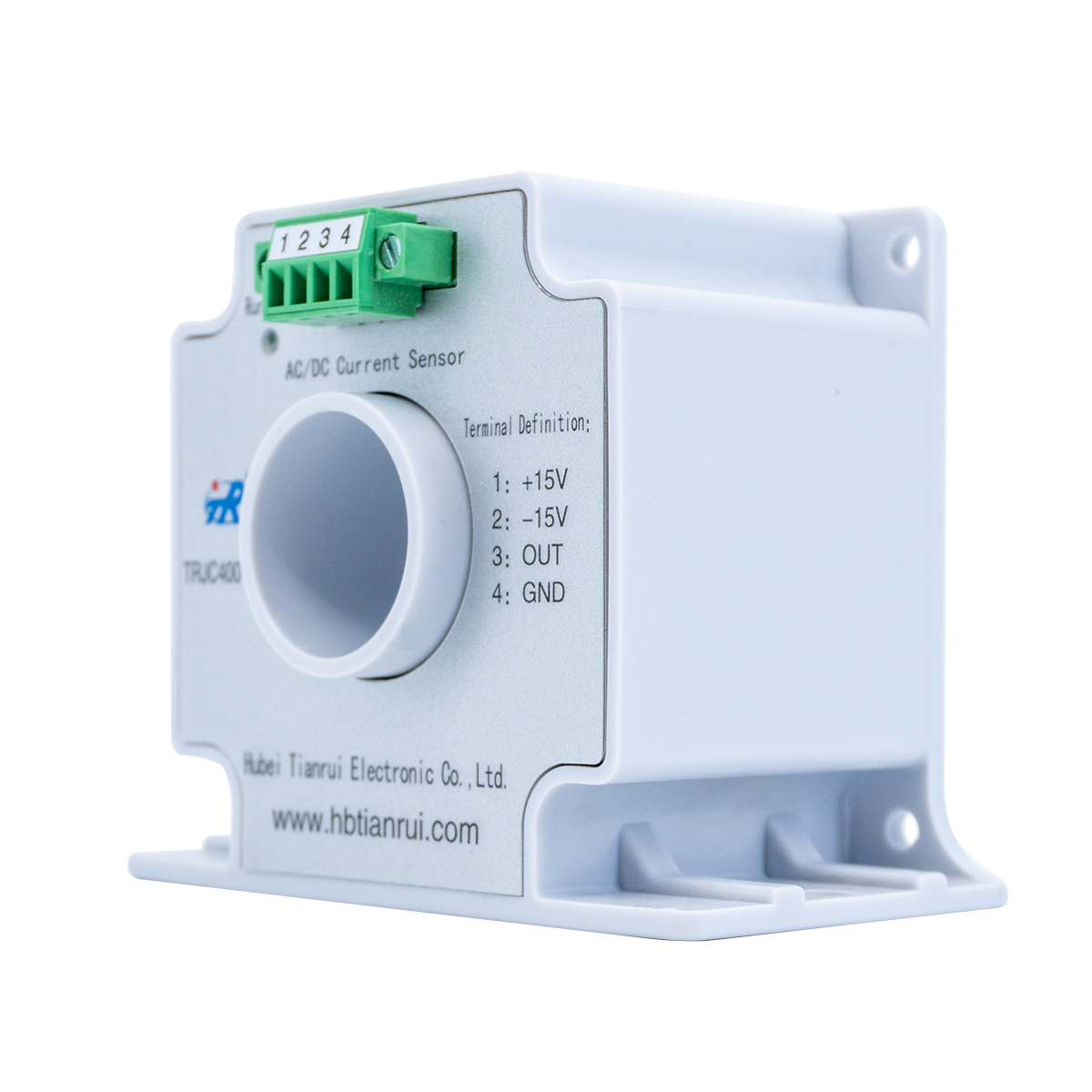As modern industries continue to advance, the demand for accurate, reliable, and stable current measurement has grown significantly. From renewable energy to smart grids, from industrial automation to power electronics, precise current sensing is essential to ensure both safety and efficiency. This is where Tianrui's current sensors play a pivotal role, offering advanced measurement capabilities that surpass conventional technologies.

By leveraging the zero magnetic flux principle, these sensors provide outstanding accuracy, long-term stability, and versatility across a wide range of applications.
What Are High Precision Current Sensors
High precision current sensors are advanced devices designed to measure electric current with exceptional accuracy. Unlike traditional current transformers or shunt resistors, these sensors are engineered using sophisticated principles such as the zero magnetic flux technology.
This design ensures that the magnetic flux inside the sensor core remains nearly zero, eliminating the errors caused by temperature variations and magnetic saturation. As a result, these sensors can measure both AC and DC currents simultaneously while maintaining high accuracy and reliability.
Key Features of High Precision Current Sensors
1. Temperature Insensitivity
Conventional current sensors often experience drift in measurement accuracy due to changes in ambient temperature. High precision current sensors, however, are largely unaffected by temperature variations because of their zero magnetic flux design. This makes them suitable for harsh environments and applications requiring consistent performance.
2. Simultaneous AC and DC Measurement
Many current sensors are limited to either AC or DC measurement. High precision current sensors can accurately measure both, making them highly versatile in modern power systems where mixed currents are common.
3. High Accuracy
The zero flux principle ensures that these sensors maintain exceptional measurement accuracy. This precision is critical in industries such as medical devices, aerospace, and power electronics, where even small errors can lead to significant consequences.
4. Wide Frequency Band
These sensors are capable of measuring across a wide frequency spectrum. Whether it is low-frequency DC current or high-frequency switching signals in power converters, high precision current sensors deliver consistent and reliable results.
5. Excellent Stability
Stability over time is another defining characteristic. Unlike sensors that degrade or lose accuracy with extended use, high precision current sensors offer long-term performance reliability, reducing maintenance costs and ensuring dependable operation.
Benefits in Power Systems
1. Enhancing Safety
Accurate current measurement is vital to protect electrical equipment and prevent hazards such as overloads, short circuits, and overheating. By providing precise real-time data, high precision current sensors enable effective monitoring and early fault detection, enhancing overall system safety.
2. Improving Energy Efficiency
In modern power systems, efficiency is key. High precision sensors allow for optimized energy management by ensuring that current flow is measured and controlled with high accuracy. This minimizes energy losses, supports load balancing, and improves overall system performance.
3. Supporting Renewable Energy
In solar and wind power systems, current sensors are used to monitor energy conversion and grid integration. The wide frequency response and stability of high precision current sensors make them ideal for handling fluctuating currents in renewable energy applications.
4. Enabling Smart Grids and Automation
With the rise of smart grids and industrial automation, real-time monitoring and data accuracy are crucial. High precision sensors provide the detailed current measurements needed for intelligent control, predictive maintenance, and efficient system optimization.
5. Reducing Operational Costs
By minimizing errors, improving system efficiency, and ensuring long-term reliability, these sensors help reduce operational costs. Companies benefit from fewer equipment failures, lower maintenance needs, and optimized energy consumption.
Applications of High Precision Current Sensors
High precision current sensors are widely used across industries:
Power Electronics: Inverters, converters, and rectifiers rely on accurate current measurement for performance optimization.
Renewable Energy: Solar panels, wind turbines, and battery storage systems use these sensors for monitoring and efficiency.
Electric Vehicles: For motor control, charging systems, and battery management, precise current sensing ensures safe and efficient operation.
Medical Equipment: Sensitive devices such as MRI machines and surgical equipment depend on stable and accurate current monitoring.
Industrial Automation: Robotics, machine tools, and production lines use these sensors for real-time monitoring and control.
Smart Grids: Grid monitoring, fault detection, and energy distribution all benefit from high precision current sensing.
Why Choose High Precision Current Sensors
When compared to traditional current measurement devices, high precision current sensors provide a combination of accuracy, stability, and flexibility that is unmatched. For businesses and industries striving to improve safety, efficiency, and sustainability, investing in these advanced sensors ensures future-ready solutions.
The advantages include:
Higher measurement reliability
Better adaptability to harsh environments
Compatibility with modern digital systems
Reduced energy losses and operational costs
Conclusion
High precision current sensors are transforming how industries measure and control electrical currents. Thanks to their zero magnetic flux principle, they offer unmatched accuracy, stability, and resilience against temperature fluctuations. By enabling simultaneous AC and DC measurement, providing a wide frequency band, and ensuring long-term reliability, these sensors significantly improve both the safety and efficiency of power systems.
As industries move toward renewable energy, smart grids, and advanced automation, the importance of high precision current sensors will only continue to grow. For businesses looking to stay ahead in technology and sustainability, adopting these sensors is a forward-looking investment.







